| Voice/Instrument: | Pianoforte |
Biography
Argerich was born in Buenos Aires and started playing the piano at age three (the provenance of the name Argerich is uncertain: some say it is Catalan, while others maintain it originates from Croatia). At age five, she moved to teacher Vincenzo Scaramuzza who stressed to her the importance of lyricism and feeling. Argerich gave her debut concert in 1949 at the age of eight. The family moved to Europe in 1955 where Argerich studied with Friedrich Gulda in Austria. Juan Perón, then the president of Argentina, made their decision possible by appointing her parents to diplomatic posts in the Argentine Embassy in Vienna. She later studied with Stefan Askenase and Maria Curcio. In 1957, at sixteen, she won both the Geneva International Music Competition and the Ferruccio Busoni International Competition, within three weeks of each other. It was at the latter that she met Arturo Benedetti Michelangeli whom she would later seek out for lessons during a personal artistic crisis at the age of twenty, though she only had four lessons with him in a year and a half.Her greatest influence was Gulda, with whom she studied for 18 months.
Argerich rose to international prominence when she won the seventh International Frederic Chopin Piano Competition in Warsaw in 1965, at age 24.
In 1966, she debuted in the United States in the Lincoln Center's Great Performers Series. In the same year, she also made her first recording, including works by Chopin, Brahms, Ravel, Prokofiev, and Liszt, which received critical acclaim. In 1965, she recorded Chopin's Scherzo No. 3, Polonaise, Op. 53, and other short works in the later years.
Argerich has often remarked in interviews of feeling "lonely" on stage during solo performances. Since the 1980s, she has staged few solo performances, instead focusing on concertos and, in particular, chamber music, and accompanying instrumentalists in sonatas. She is noted especially for her recordings of 20th century works by composers such as Rachmaninoff, Messiaen and Prokofiev. One notable compilation pairs Rachmaninoff's Piano Concerto No. 3 (recorded in December 1982 with the Radio Symphonie-Orchester Berlin under direction of Riccardo Chailly) with Tchaikovsky's Piano Concerto No. 1 (February 1980, Symphonie Orchester Des Bayerischen Rundfunks, Kirill Kondrashin).
Argerich is also famous for her interpretation of Prokofiev's Piano Concerto No. 3 and Ravel's Piano Concerto in G, which she has recorded several times and continues to perform.
Argerich has also promoted younger pianists, both through her annual festival and through her frequent appearances as a member of the jury at important competitions.The pianist Ivo Pogorelić was thrust into the musical spotlight partly as a result of Argerich's actions: after being eliminated in the third round of the 1980 International Frederic Chopin Piano Competition in Warsaw, Argerich proclaimed him a "genius" and left the jury in protest.She has supported several artists including Gabriela Montero and Sergio Tiempo.
Argerich is president of the International Piano Academy Lake Como and performs each year at the Lugano Festival, Switzerland. She also created and has been General Director of the Argerich Music Festival and Encounter in Beppu, Japan, since 1996.
Her aversion to the press and publicity has resulted in her remaining out of the limelight for most of her career. Nevertheless she is widely recognized as one of the greatest pianists of her time.
Argerich has been married three times. Her first marriage was to composer-conductor Robert Chen, with whom she had a daughter, Lyda Chen, who is a violist. From 1969 to 1973, Argerich was married to conductor Charles Dutoit, with whom she had a daughter, Anna. Argerich continues to record and perform with Dutoit. Her third husband was pianist Stephen Kovacevich, with whom she had a daughter, Stephanie.
In 1990, Argerich was diagnosed with malignant melanoma. After treatment, the cancer went into remission, but there was a reoccurrence in 1995, eventually metastasizing to her lungs and lymph nodes. Following aggressive treatment at the John Wayne Cancer Institute, which included the removal of part of her lung and use of an experimental vaccine, Argerich's cancer went into remission again. In gratitude, Argerich performed a Carnegie Hall recital benefiting the Institute. Once a heavy cigarette smoker, Argerich quit smoking following her treatment. As of 2010, Argerich remains cancer-free.

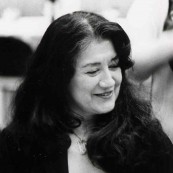

![Martha Argerich and Friends: Live from Lugano 2011 [CD 1 of 3]](http://static.classicalm.com/repository/disk-cover/small/1861-img1344862225709236.jpg)
![Martha Argerich and Friends: Live from Lugano 2011 [CD 2 of 3]](http://static.classicalm.com/repository/disk-cover/small/1863-img1344865303495286.jpg)
![Martha Argerich and Friends: Live from Lugano 2011 [CD 3 of 3]](http://static.classicalm.com/repository/disk-cover/small/1865-img1344869071445448.jpg)
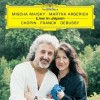
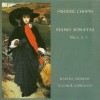
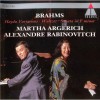
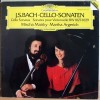
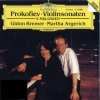
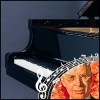
![Martha Argerich Edition: Chamber Music [CD4of8]](http://static.classicalm.com/repository/disk-cover/small/3572-img1403958933279757.jpg)
![Martha Argerich Edition: Chamber Music [CD5of8]](http://static.classicalm.com/repository/disk-cover/small/3573-img1403959269319066.jpg)
![Martha Argerich Edition: Chamber Music [CD6of8]](http://static.classicalm.com/repository/disk-cover/small/3574-img1404466616838977.jpg)
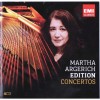
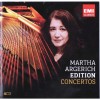
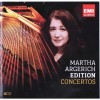
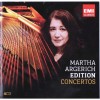
![Martha Argerich Edition - Solos & Duos [CD1of6]](http://static.classicalm.com/repository/disk-cover/small/3581-img1404476538787570.jpg)
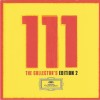
![Steinway Legends - Martha Argerich [2 CD]](http://static.classicalm.com/repository/collection-cover/small/237-img1316861995833914.jpg)
